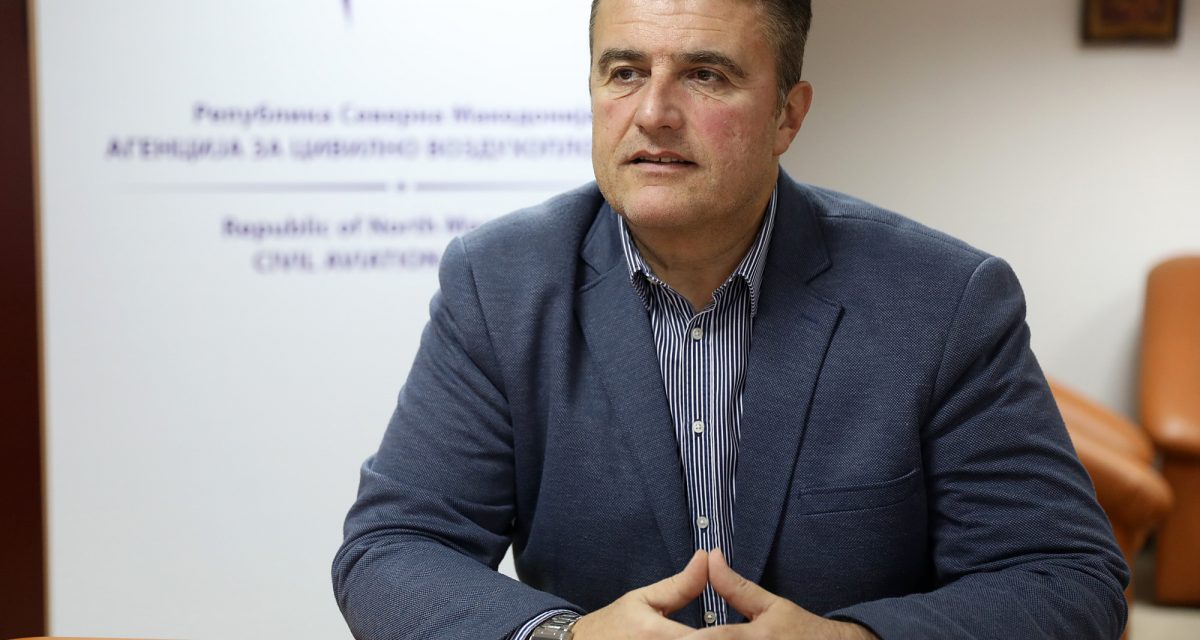Mr. Tomislav Tuntev Ph.D., Director General of the CAA: THE CHALLENGES OF EUROPEAN AVIATION IN 2020


The challenges of European aviation in 2020
A total of 44 European states harmonize their national aviation policies and practices within the frames of the European Civil Aviation Conference (ECAC). ECAC’s mission is to promote continuous development of safe, efficient and sustainable European air transport system through mutual understanding and cooperation with the member states, as well as with other parts of the world. This means that the common interests of all European countries in the field of civil aviation are defined, channeled and coordinated through the bodies and organs of this major pan-European aviation organization.
According to the general policy and documents of ECAC the priorities of European aviation for 2020 can be summarized around the following 5 topics:
- establishing a more efficient aviation safety oversight in order to ensure its continuous improvement in conditions of maintaining high level of capacity and efficiency of the transport system;
- providing maximum efforts for improving the sustainability of the air transport system and environmental protection;
- promoting higher standards in the field of aviation security and facilitation in air transport;
- implementing transparent and agile legislative framework for applying innovative and contemporary technologies;
- undertaking additional measures and activities for economically feasible global air transport system.
Macedonia is a full member of ECAC since July 1997, which conveys obligation and responsibility to all relevant national institutions and organizations in the field of aviation to duly comply with the established priorities.
Safety and Air Navigation
The development of a flexible and resistant air transport system will continue during 2020, thus ensuring not only prevention of aviation incidents, accidents and serious incidents, but also an appropriate and efficient reaction in case of their occurrence. This includes implementation of an efficient risk management system, efficient and independent investigation of occurred incidents, accidents and serious incidents, competent (qualified and trained) personnel, clearly and precisely defined and established responsibilities of all entities in the system and flexibility for adaptation to the newly created circumstances.
The increasing demands for air transport, the continuous increase of the number of overflights over the European sky and the improvement of operational, exploitation and technical performance of aircraft give rise to the need to expand the limited capacities of the existing systems for management and control of air traffic, which will entail an essential need for their fast and efficient transformation and modernization through developing innovative technological processes and digitalization.
The lack of qualified personnel in the regulatory oversight authorities, which is faced by most states due to the outflow of the experienced trained aviation personnel in the aviation industry is expected to be resolved or at least mitigated by larger investments in relevant professional training and closer regional cooperation for common use of aviation inspectors.
Aviation Security
In the field of aviation security, the focus will be on support of implementation of the ICAO Global Aviation Security Plan. Furthermore light will be shed on the issues of re-affirmation of the stance for equally valuing aviation security and safety, finding efficient mechanisms and consistent implementation of ICAO Annex 17 Standards and Recommended Practices, full support of the ICAO initiative development program “No Country Left Behind” and full support of the Global Cyber Security Strategy through development of action plan with specific milestones for developing a mature security framework in the field of computer and information technologies.
Aviation Facilitation
The achieved progress in the European countries in terms of improvement and optimization of movement of aircraft, passengers, crews and cargo through implementation of facilitation measures and activities as a key aspect for sustainable traffic growth is evident.
In 2020 the focus will continue to be on processing passengers through PNR (Passenger Name Record) systems with development and implementation of a global framework for responsible, conscientious and legal use of data. In that way adequate protection of personal data and full respect of universal human rights and fundamental freedoms will be ensured, including also the protection of privacy.
In addition, the practice of providing relevant assistance and support to the families of victims in aviation accidents and serious incidents will continue to be implemented.
European countries strongly support all activities of the responsible international and national institutions in the fight against illegal human trafficking. For that purpose professional training related to implementation of ICAO Annex 9 Standards and Recommended Practices regarding reporting and alerting upon suspicion for illegal human trafficking in aviation and raising the awareness of all aviation entities regarding this current problem will be continued.
Finally, a special emphasis is expected to be placed on further consistent implementation of the Standards and Recommended Practiced for protection of right of people with limited mobility, which means providing a full and unrestricted access to passengers with special needs within the air transport infrastructure.
Environmental protection
The enormous growth of the physical scope of traffic over the European sky creates new environmental challenges for all entities in the global air transport system. It is mostly related to protection of people from noise and reducing CO2 emissions in the fight against global climate changes. The European countries strongly advocate a consistent and immediate implementation of CORSIA-ICAO’s comprehensive global development carbon offsetting and reduction scheme in aviation.
Economic issues
In relation to the issues in the field of aviation having impact on the economic development of the European countries, in 2020 the main emphasis will be on implementation of ICAO’s long-term vision for liberalization through promotion of fair competition between airlines and open market access, reduction and annulling state interventions, support of international investments for development of airlines, improvement of the protection of workers’ rights, international exchange of experiences, ideas and positive practices in the field of protection of air passengers’ rights, as well as full support of the independence and adequate financing of the national regulatory bodies for efficient oversight of the aviation industry entities.
Legal issues
Regarding the issues related to the implementation of international air law, European countries will continue with full support of signing and ratification of all adopted and enacted international aviation legal instruments, which should enable seamless development and implementation of the global aviation transport system. In that sense, the following current issues are relevant: legal regulation of the need for using the global satellite navigation systems, adoption of new international conventions and protocols for promoting aviation safety, promotion of relevant legal frameworks for development of international aviation activities of the “new participants”-unmanned aircraft in commercial transport, air taxis in urban environments, application of new technologies in the field of air transport-all in direction of achievement of the expected benefits of aviation industry entities, passengers and generally speaking, all stakeholders in the field of aviation.
January, 2020
Tomislav Tuntev, PhD
Director General of the CAA
Archive
- 09.05. Aviation safety promotion
- 20.10.  
- 14.11. CAA became a member of JARUS
- 14.11. CAA visit BHDCA
- 14.11. Promotional flight Dubai
- 14.11. MACEDONIANS OVERLY EUROPEANS
- 14.11. Attention
- 09.11. Kurban Bajrami
- 28.10. Certificate of Gratitude
Archives
Calendar
| M | T | W | T | F | S | S |
|---|---|---|---|---|---|---|
| 1 | 2 | 3 | 4 | 5 | ||
| 6 | 7 | 8 | 9 | 10 | 11 | 12 |
| 13 | 14 | 15 | 16 | 17 | 18 | 19 |
| 20 | 21 | 22 | 23 | 24 | 25 | 26 |
| 27 | 28 | 29 | 30 | 31 | ||

